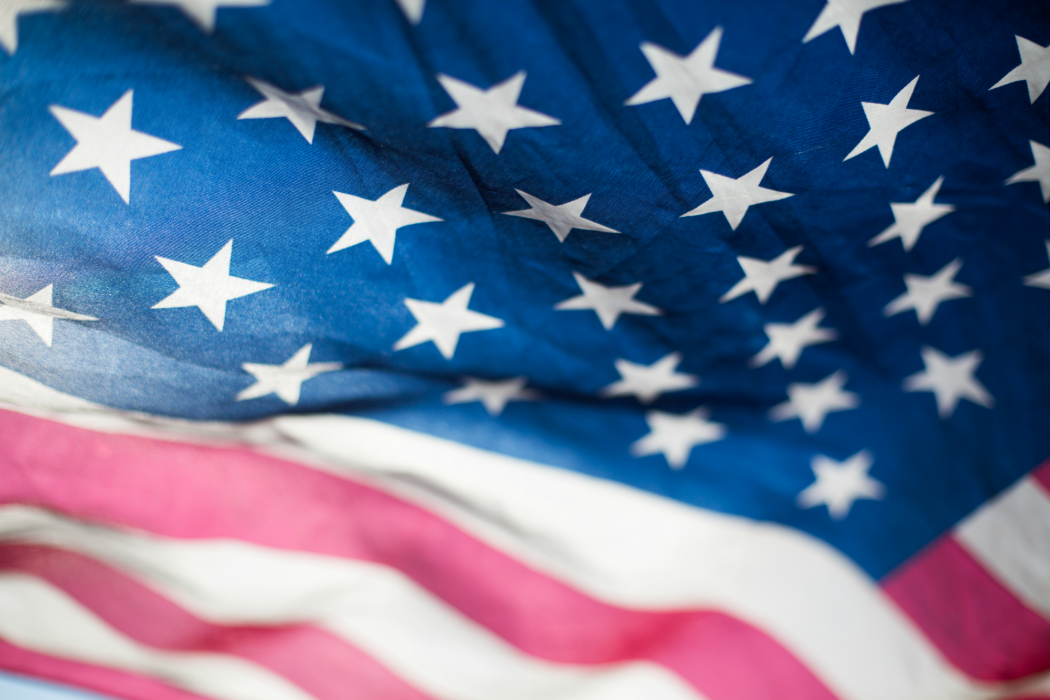 In October of 1968, Johnson called a halt to North Vietnamese bombings to fuel peace talks. The Soviets had promised that if the attacks stopped, Hanoi would come to the negotiating table. The end to a war that had already claimed 30,000 American lives was in sight. But in the eleventh hour, South Vietnam walked away from negotiations, and the U.S. stayed in the war for another five years.
In October of 1968, Johnson called a halt to North Vietnamese bombings to fuel peace talks. The Soviets had promised that if the attacks stopped, Hanoi would come to the negotiating table. The end to a war that had already claimed 30,000 American lives was in sight. But in the eleventh hour, South Vietnam walked away from negotiations, and the U.S. stayed in the war for another five years.
As we now know from recently released papers from H. R. Haldeman, a close aide to Richard Nixon, Nixon was worried that ending the Vietnam war less than a month before the election would hand the nomination to Vice President Hubert Humphrey. Nixon instructed Haldeman to use their South Vietnamese influence to throw a monkey wrench into the peace talks.
After he was president, Nixon worked out a peace deal that was virtually the same as Johnson’s a year earlier, but he still managed to bungle the end to the war, which dragged on for another four years. In the end, scuttling Johnson’s peace negotiations cost another 21,000+ U.S. lives.
Mother, can I trust the government?
This story reveals the corrupt and dangerous nature of power. Who would intentionally rout potential peace with the lives of their soldiers (mostly teens) hanging in the balance? Obviously, someone in authority who had something to lose. But this isn’t an isolated event where war was started or prolonged out of bad intel, political expedience, or careless politics.
We ended up on the 2003 Iraqi Shock and Awe tour based on poor intelligence (probably outright lies) about weapons of mass destruction and public outrage over 9/11. And depending on the outlet, the death toll for those seven years fluctuates between 110,000 to 460,000 lives.
If you ask most Americans whether they can trust the government to have their best interests at heart, they’ll tell you no. The conservative don’t-tread-on-me crowd builds their whole worldview around the idea that they may eventually have to go to war with a tyrannical government.
So why is it that there are so many people who believe they need to store up weapons to potentially fight off a despotic government, but never seem to question that government (beyond hating people in power from opposing parties)?
A brilliant marketing strategy
Since countries have been going to war, soldiers have been used to drum up support for military aggression. Every nation’s army is made up of their citizen’s children, siblings, and loved ones. By lionizing these young people in uniform, governments have historically found that they’re able to create support (or at least silence opposition) for war.
War kills a nation’s youth. So you’d think that people would be more strongly opposed to the idea, but they’re not. Why? Because the pro-military propaganda of industrial nations with huge militaries turns soldiers into heroes—and by not supporting military action, you’re not supporting those heroes.
It’s the perfect marketing strategy. Everyone knows that war kills soldiers and that knowledge alone should make a nation reticent to use force. But by aggrandizing people in uniform, they ensure that skepticism about military action means you invalidate military service. After all, it’s wrong for young men and women to die for people who aren’t grateful.
What’s strange is that every nation has the same narrative. “We’re the good guys required to make huge sacrifices to fend off other nations who want to ruin our way of life. It’s military families that make the largest sacrifice, and they shouldn’t have to give their lives for ungrateful people—and the key to gratefulness is your unwavering support of our military.”
When nations glorify soldiers, it obscures the truth about a government’s true motives and justifications for aggression.
Protecting our freedoms
Military reverence often starts in elementary school. I remember my kids’ classes talking about the good that soldiers did and writing thank-you cards during the Iraq war. It’s something that’s consistently hammered home, from cheering for service members on commercial flights to the growing trend toward military pageantry at sporting events.
I was waiting for my wife in the middle of the mall one day and struck up a conversation with a young guy in uniform. He was on leave and waiting patiently for his sister to get off work. In the course of our discussion, a handful of people interrupted us to thank him for protecting their freedoms. A couple of moms even encouraged (forced) their kids to come over and thank him too.
The attention seemed to make him uneasy, so I asked him, “Does that make you uncomfortable?”
“I don’t know,” he said. “We’re not really protecting anyone’s freedoms.”
His comment stuck with me. The more I thought about it, the more I realized he was right. Which wars can we honestly say were fought to protect our at-risk freedoms? The Revolutionary War? The Civil War? World War II? I guess it’s all a matter of perspective. During WWII, a lot of military personnel were employed at home running internment camps for Japanese Americans.
If we’re honest, we’ll admit that a lot of American military action has been questionable at best. Do I blame soldiers for that? No. But we need to recognize the blindspot that’s created by our hero worship. The national protecting-our-freedoms mindset makes it increasingly difficult to be critical (or even thoughtful) about how we use our military around the world.
It’s essential that we’re skeptical about our military use. We’re being told that our “enemies” loathe us for our liberties, but that’s not accurate. They don’t hate us for who we are; they hate us for what we do. Every middle-eastern civilian casualty caused directly by our military—or indirectly by arms we’ve sold to countries like Saudi Arabia—strengthens and encourages the terrorism we say we’re at war with.
Are all soldiers heroes?
You don’t instantly become a role model or a paladin because you wear a uniform. People end up serving in the military for a number of reasons. Some want to serve their country with honor and respect, some lack prospects out of high school, and some just fetishize the idea of being a soldier.
No job or service instantly makes you deserving of a pedestal. Are there heroes in the military? Absolutely. But there are also people who you’d never want babysitting your child. If everyone were instantly a role model because they’re serving our country, we wouldn’t have more than 6,000 sexual assault charges a year for both 2015 and 2016 (and those are the ones that got reported).
Serving the military-industrial complex
Eisenhower issued a dire warning in his farewell address. He told us to be very wary of the power and influence of those who stand to financially gain from the military. He said it this way:
This conjunction of an immense military establishment and a large arms industry is new in the American experience. The total influence—economic, political, even spiritual—is felt in every city, every statehouse, every office of the federal government. We recognize the imperative need for this development. Yet we must not fail to comprehend its grave implications. Our toil, resources and livelihood are all involved; so is the very structure of our society.
In the councils of government, we must guard against the acquisition of unwarranted influence, whether sought or unsought, by the military–industrial complex. The potential for the disastrous rise of misplaced power exists, and will persist. We must never let the weight of this combination endanger our liberties or democratic processes. We should take nothing for granted. Only an alert and knowledgeable citizenry can compel the proper meshing of the huge industrial and military machinery of defense with our peaceful methods and goals so that security and liberty may prosper together.
He wasn’t lying.
In 2016, the $304 billion in contracts were issued by the Pentagon. Take a company like Lockheed Martin, for instance. They received $36.2 billion in 2016 government contracts. Over $5 million of that goes directly to campaign contributions, and they use $13.6 million for lobbying. That money buys influence, and that influence ensures that more money will come rolling in from military contracts.
This trend occurs across the board:
- Boeing: $24.3 billion in contracts
$17 million lobbying - Raytheon: $12.8 billion
$3 million in contributions
$ 4.8 million in lobbying - General Dynamics: 12.7 billion
$10.7 million lobbying
The military-industrial complex makes money hand over fist. And it isn’t just companies that create weapons. You have to look at the corporations providing health care, pharmaceutical companies, and military-research organizations—and even the corporations hired to go in and fix the international infrastructure that our military has helped break.
What do these corporations need to keep the gravy train running? A robust and aggressive military. And how do they do that? Well, they can’t do it by creating commercials and advertisements for war. So they do it by crafting a nationalistic, patriotic, pro-military sentiment in the United States. They do it by lionizing and aggrandizing those who serve.
Think about it. A publicly traded company like Lockheed Martin makes shareholders rich. These shareholders also sit on the boards of other corporations where they help shape national dialogue about the military. When companies like Wal-Mart, Bank of America, or even Fox News feature pro-military ads, stories, and promotions, it isn’t just about altruism. It molds national feelings and attitudes about the military in general.
The enmeshed nature of America’s corporate structure creates tendrils that worm their way into every area of American life, making it difficult for us to see the correlation between cause and effect. For the military-industrial complex to thrive, we need to be oblivious to it. By focusing all of our attention on the local men and women serving in uniform, we ignore the money being made by the national war machine. We don’t realize it, but we’re being played.
Smedley Butler, who died in 1940 as the most decorated U.S. Marine, recognized the problem clearly:
“I spent 33 years and four months in active military service and during that period I spent most of my time as a high-class muscle man for Big Business, for Wall Street and the bankers. In short, I was a racketeer, a gangster for capitalism. I helped make Mexico and especially Tampico safe for American oil interests in 1914.
I helped make Haiti and Cuba a decent place for the National City Bank boys to collect revenues in. I helped in the raping of half a dozen Central American republics for the benefit of Wall Street. I helped purify Nicaragua for the International Banking House of Brown Brothers in 1902-1912. I brought light to the Dominican Republic for the American sugar interests in 1916. I helped make Honduras right for the American fruit companies in 1903. In China in 1927 I helped see to it that Standard Oil went on its way unmolested. Looking back on it, I might have given Al Capone a few hints. The best he could do was to operate his racket in three districts. I operated on three continents.”
I guarantee this problem has gotten worse since Butler recognized it—not better.
If we really cared about soldiers . . .
If you doubt what I have to say about the public military dialogue, consider how things would be different if we cared about our soldiers.
It’s estimated that America has 39,471 homeless vets on any given evening, and there are a number of reasons why. A lot of it comes from the lingering effects of PTSD and lack of sufficient support systems. On top of that, there were a number of stories of banks foreclosing on the homes of service members when they were overseas.
In 2012, we got to the point where there were more service members dying of suicide than combat deaths (312 vs. approx. 210). The suicide rate has remained high for about seven years—265 active-duty service members in 2016. This is an outlandish number in a country that brags about its support for its troops. Unless, of course, that support is more about the idea of the troops rather than the troops themselves.
And of course, I’m ignoring the elephant in the room if I don’t mention the alarming problems with the VA system.
Becoming people who think
As a Christian, I look around at the people who are supposed to share my faith and scratch my head. The way evangelicals conflate patriotism and Christianity astounds me. This unnuanced pro-militarism makes it impossible to see war through the eyes of Christ. The aggressive nationalism that colors so much Christian discussion is pathological.
To continually invoke those who serve (or die for) our country as a way of squelching protest or debate is ridiculous, especially if you’re not actively concerned about or involved in the post-military care of our troops.
Even if you’re a Christian with a just-war view of conflict, you owe it to the kingdom of God to disengage from simplistic nationalism and pro-military propaganda. As Emerson said, “When a whole nation is roaring patriotism at the top of its voice, I am fain to explore the cleanness of its hands and the purity of its heart.”












